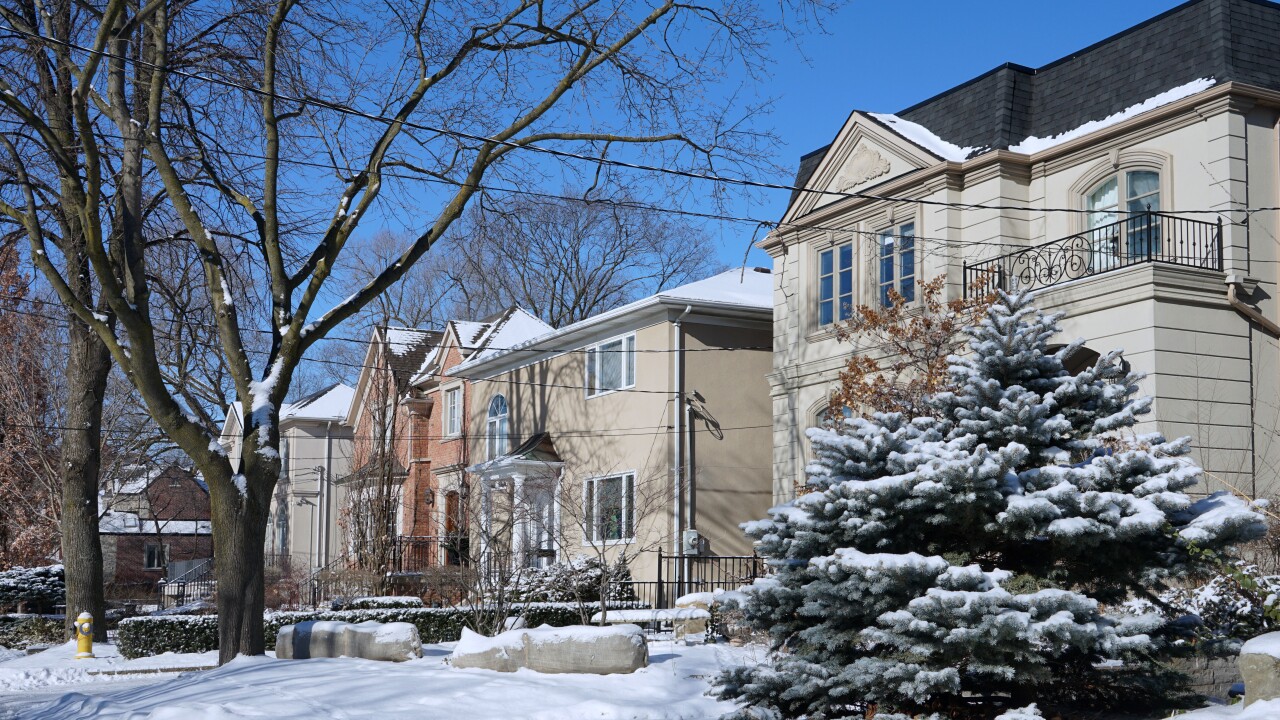Property inspection waivers were granted on 40.2% of the underlying mortgages, reflecting an increasing trend of agency mortgages being originated without them.
-
Less than 45% of mortgage residential properties in the United States were equity-rich last quarter, a 1.5-percentage-point drop from the third quarter.
February 3 -
Machinery, medical, IT hardware, vehicles and the industrial sectors make up the top five categories in the pool.
February 3 -
President Donald Trump's support of legislation that would cap credit card interest rates at 10% has flagged in recent weeks, but experts say that the debate has highlighted significant gaps in regulators' understanding of the credit card market and how its risks are priced.
February 3 -
Although investor properties, which are prone to higher chances of default, account for 58% of the pool, the strong borrower and collateral quality mitigate the credit stress.
February 2 -
The Chicago-based, $261 million-asset Metropolitan Capital Bank & Trust was placed in receivership and its assets sold to Detroit-based First Independence Bank, costing the Federal Deposit Insurance Corp.'s Deposit Insurance Fund an estimated $19.7 million.
January 30
-
There is little wonder why the Fed is expected to maintain its dovish stance, given a leveled-off unemployment rate and cooled inflation.
January 30 -
Preemption would hurt affordability for many, the Conference of State Banking Supervisors and the American Association of Residential Mortgage Regulators said.
January 30 -
Former Fed Gov. Kevin Warsh is a relatively known quantity to financial markets, but his embrace of President Trump's agenda and the White House's own contentious relationship with the central bank make it hard to know with certainty where — or even whether — he will lead the Fed.
January 30 -
In terms of the deal's capital structure, will repay noteholders following a sequential, shifting-interest structure, and six subordinate classes support the senior notes.
January 30 -
DRMT 2026-INV1, is backed by a pool of 1,153 non-prime investment property mortgages, which have a moderate leverage levels of an original, combined loan-to-value (CLTV) ratio of 69.9%.
January 29 -
A Government Accountability Office report warns the Office of the Comptroller of the Currency to clarify which records from the Basel Committee on Banking Supervision should be treated as federal records and thus retained according to the Federal Records Act.
January 29 -
Net franchise royalties support Jersey Mike's Funding 2026-1's cash flows, which accounts for 52.9% of securitized revenues.
January 29












